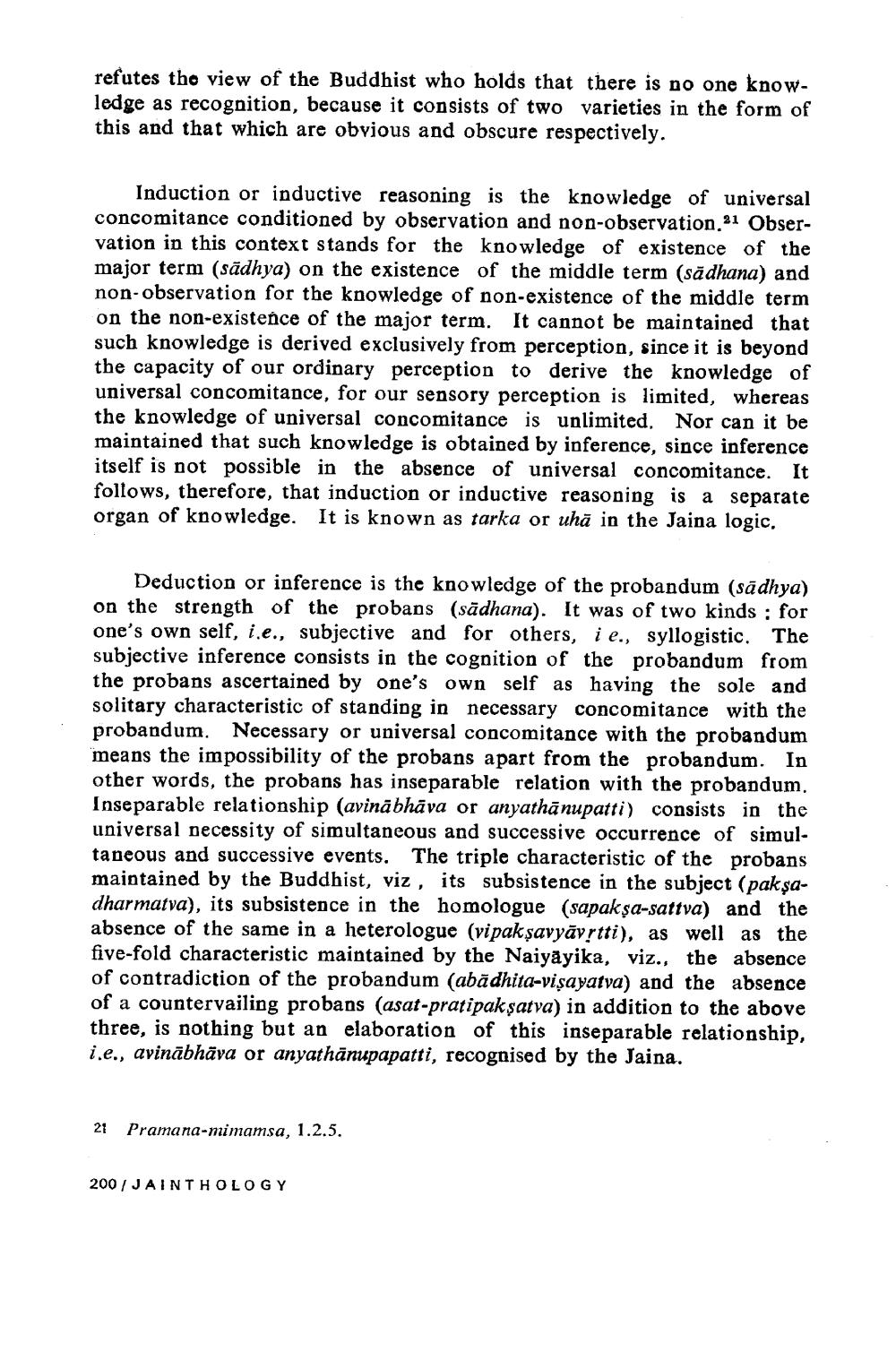________________
refutes the view of the Buddhist who holds that there is no one knowledge as recognition, because it consists of two varieties in the form of this and that which are obvious and obscure respectively.
Induction or inductive reasoning is the knowledge of universal concomitance conditioned by observation and non-observation.21 Observation in this context stands for the knowledge of existence of the major term (sādhya) on the existence of the middle term (sādhana) and non-observation for the knowledge of non-existence of the middle term on the non-existence of the major term. It cannot be maintained that such knowledge is derived exclusively from perception, since it is beyond the capacity of our ordinary perception to derive the knowledge of universal concomitance, for our sensory perception is limited, whereas the knowledge of universal concomitance is unlimited. Nor can it be maintained that such knowledge is obtained by inference, since inference itself is not possible in the absence of universal concomitance. It follows, therefore, that induction or inductive reasoning is a separate organ of knowledge. It is known as tarka or uhā in the Jaina logic,
Deduction or inference is the knowledge of the probandum (sādhya) on the strength of the probans (sādhana). It was of two kinds : for one's own self, i.e., subjective and for others, ie., syllogistic. The subjective inference consists in the cognition of the probandum from the probans ascertained by one's own self as having the sole and solitary characteristic of standing in necessary concomitance with the probandum. Necessary or universal concomitance with the probandum means the impossibility of the probans apart from the probandum. In other words, the probans has inseparable relation with the probandum. Inseparable relationship (avinābhāva or anyathānupatti) consists in the universal necessity of simultaneous and successive occurrence of simultaneous and successive events. The triple characteristic of the probans maintained by the Buddhist, viz , its subsistence in the subject (paksadharmatva), its subsistence in the homologue (sapakşa-sattva) and the absence of the same in a heterologue (vi pakşayyāvrtti), as well as the five-fold characteristic maintained by the Naiyāyika, viz., the absence of contradiction of the probandum (abādhita-visayatva) and the absence of a countervailing probans (asat-pratipakşatva) in addition to the above three, is nothing but an elaboration of this inseparable relationship, i.e., avinābhāva or anyathānupapatti, recognised by the Jaina.
21 Pramana-mimamsa, 1.2.5.
200 / JAINTHOLOGY




